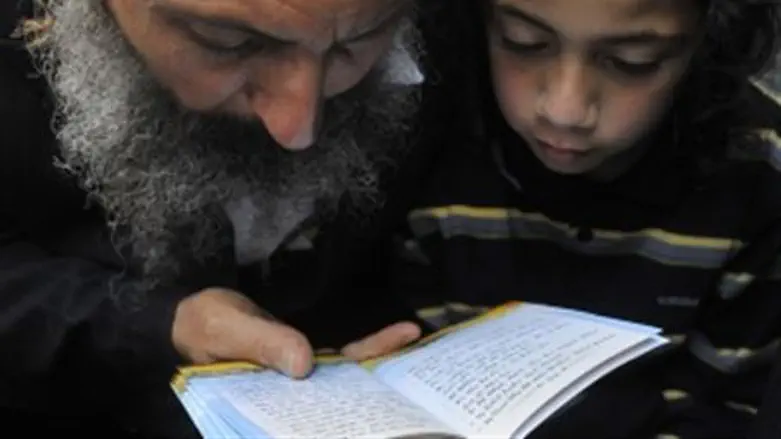
A bill that is currently in advanced legislation stages would deprive divorcing fathers living in public housing of any rights to their own homes. The bill would transfer all rights to the home to the spouse who has custody of the children – who, in Israel, is the mother in over 90% of divorce custody cases. In some cases, the result would be that a disabled man with no property would be thrown into the street.
Public housing in Israel is granted to a limited number of disadvantaged families that do not possess homes. These include couples in which the husband or wife needs to use a wheelchair for mobility, or has some other serious disability. The homes are rented for very low sums and can be bought after a certain period of time.
In practice, the proposed law would make it possible to deprive a disabled husband of his right to any part of his home, even if the right to reside in that home was granted to the couple based on his disability.
The explanatory notes to the law say that it is intended to deal with a specific problem that occurs in divorce cases that are brought before Rabbinical Courts, but not in those that are discussed in Family Courts. It goes on to explain that while Family Courts – established in 1995 as a counterweight to the Rabbinical Courts – always grant the public-housing home to the wife, Rabbinical Courts sometimes require the wife to compensate the husband for his part in the home.
The bill “negates the obligation by the spouse who receives the rights to the apartment, to compensate the spouse who is evicted from it,” the explanatory notes say. “The transfer of the possession of the apartment to the custodial parent is rendered void of content if that same parent has to compensate the other spouse for it. The purpose of the bill is to assist that parent, whose economic situation was so difficult in the first place, that s/he needed public housing.”
Courts in Israel require all divorced fathers to pay at least a minimum amount of child support per child (1,200-1,500 shekels per month), even if their ex-wives earn more, even if they live solely from welfare and disability payments, and even it means that they pay more than their income.
The bill has passed in the preliminary reading and the Knesset Committee for the Advancement of the Status of Women, chaired by Likud’s MK Tzipi Hotovely, prepared the bill for its first reading Monday.
The Committee’s spokeswoman, Rivka Kanarik, said in response to our query that the couples eligible for public housing are not just those with disabilities but also low-income families with three children or more (Note: according to press reports last year, the Housing Ministry is planning a reform that would make low-income families ineligible for public housing, leaving the apartments only to the disabled – ed.).
The spokeswoman also said that the bill “does not determine who receives the apartment and who will have to leave it, but only that the matter will be resolved in accordance with the Housing Ministry regulations.” The law “does not grant the wife the ability to throw anyone into the street,” she stressed. “It only determines that the apartment, which is government property, cannot be an instrument in the hands of either side for pressuring the other... The law is intended to prevent a situation in which someone applies pressure to the husband or wife to give up something which does not belong to him or to her, and therefore they cannot give it up, nor can they refuse to give it up.”
The bill was formulated by the Rackman Center in Bar-Ilan University and by Yad La’Isha, a gender feminist group that fights for the rights of women whose recalcitrant husbands refuse to grant them divorce decrees. Yad La’Isha is supported by the ultra-leftist New Israel Fund. The bill was sponsored by MK Ruchama Avraham-Balila (Kadima).